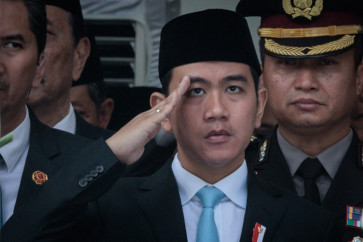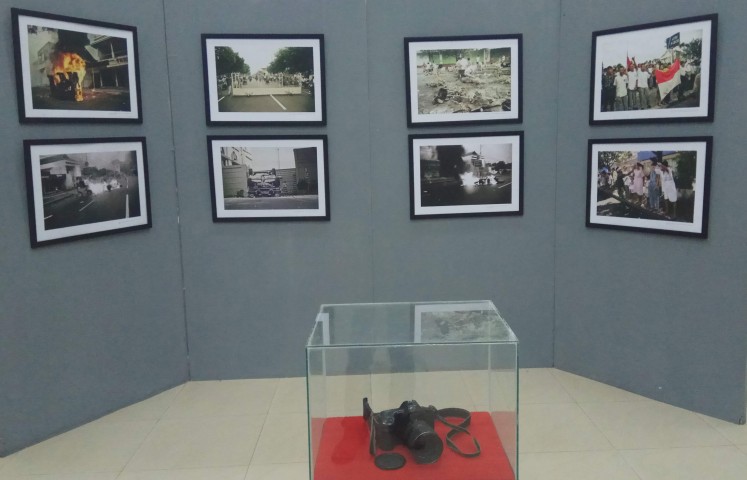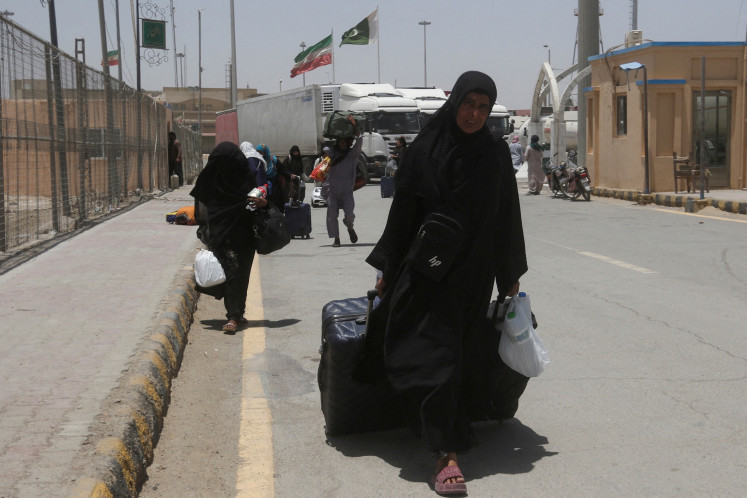Popular Reads
Top Results
Can't find what you're looking for?
View all search resultsPopular Reads
Top Results
Can't find what you're looking for?
View all search resultsThe benefit of migration: Take a gap-year!
It is very popular for young people in developed countries like the US, UK or Australia to take a gap-year, usually after completing high school or during their university years
Change text size
Gift Premium Articles
to Anyone

I
t is very popular for young people in developed countries like the US, UK or Australia to take a gap-year, usually after completing high school or during their university years. A gap-year enables them to travel around the world, as a backpacker or as a volunteer for NGOs in developing countries. The fundamental aim is straight and simple ' to learn about other cultures, immerse themselves in new communities and challenge themselves with new experiences.
Many scholars and studies support the idea of a gap-year for young people in this day and age. A gap-year is perceived to have a positive influence on the character of young people. If we expect our young people or students to become critical and innovative and have an inclusive view on diversity, encouraging them to take the temporary migration of travel will help them change themselves for the better. Studies on students taking a gap-year between high school and university have revealed a positive impact on academic performance.
The new condition will push them to use their 'survival skills' like speaking other languages, working with a local business for extra money, living with other families or gaining new friends from different countries and most importantly, opening their minds when engaging in multicultural situations. In modern studies of migration, this gap-year event can be classified as temporary migration, which benefits human capital and asset accumulation.
However, a migrationary spirit to explore new and different things is not a big part of Indonesian culture. Among Javanese, for instance, the idiom mangan ora mangan sing penting ngumpul (sticking together for better or for worse) leads people to get stuck in a comfort zone, surrounded by those who think, behave and talk as they do.
Furthermore, our story of migration is filled with many sad and even tragic stories. Our migrants are typically those who cannot be absorbed in the domestic labor market and opt for the riskiest way-out as low-skilled workers in other countries such as Malaysia and Saudi Arabia.
Data from the International Organization for Migration (IOM) and the World Bank, in comparison, show our close neighbors migrating to the UK, US and Australia. Malaysia, with a population of almost 30 million, has 240,000 people living abroad, while Thailand has 270,000 people out of a population of 67 million working overseas and the Philippines has an outstanding figure of nearly 2 million migrating to work aboard.
In contrast, Indonesia, with almost 250 million people, only accounts for 160,000 migrants. Young people account for around two-thirds of these totals.
The intensity of migration among the young is among the indicators of growing economies such as Brazil, India and China. Upon their return, these young and temporary migrants often bring back new ideas and innovation to be applied in their home countries for better productivity.
The question now is how to encourage and facilitate access for Indonesia's youth to take a gap-year, as only a small number of them have the resources and motivation to do so. The government should be more active in engaging with other countries in promoting our advantage of abundant young people.
For instance, only a few years ago, the Australian government opened access for Indonesians between 18-31 years to acquire a work and holiday visa for 12 months, for a gap-year experience to work in Australia while exploring its multiculturalism. It is a golden opportunity, but is poorly supported by the Indonesian government, particularly in sponsoring its young people.
We can imagine how substantial the benefits from this holiday visa are just by looking at the various experiences that young people can gain. For example, the payment for a day's casual work in Australia is equal to monthly minimum wages in Jakarta; they also get the chance to live with friends from other countries and learn respect for the diversity that develops their virtue and capacity to see the world from other angles.
Nevertheless, the first thing to do is to shift our perspective on the education process. Most of us remain obsessed with the formality of study and seem to forget that during that time, young people also need to develop themselves by seeing many different things, with one end goal: learning respect for mankind.
_______________
The writer is researching international migration at the Institute for Governance and Policy Analysis at the University of Canberra, Australia.









